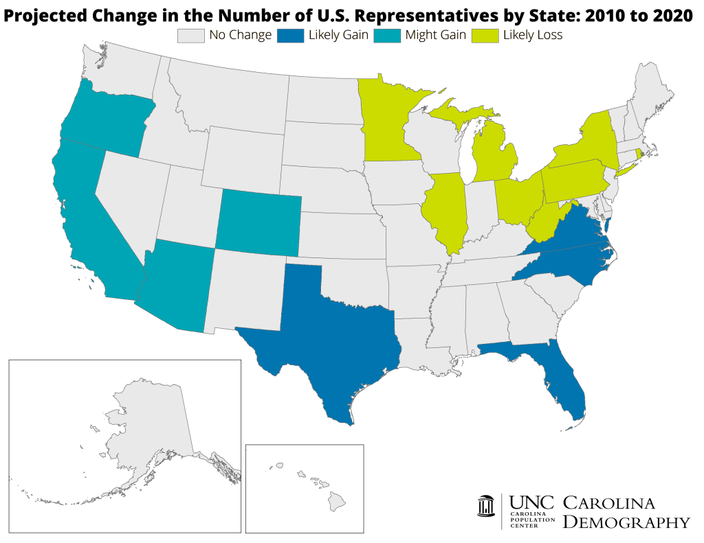
November 03, 2015
Pennsylvania, like many states in the Northeast, could lose a congressional seat after the next census, according to a new study.
The University of North Carolina study, released Tuesday, says based on census population trends, the Commonwealth is likely to drop from 18 to 17 total seats in the U.S. House of Representatives after 2020.
In addition to losing the House seat, Pennsylvania would also lose one of its Electoral College votes, a number that's decided by the number of state reps and senators.
The Keystone State joins a number of nearby states, including New York and Ohio, likely to lose a seat, according to the study. Conversely, a few Western states may gain a seat, and some Southwestern states are listed as likely to do so. Here's a map of the likely losses and gains, via the University of North Carolina:
The possibility isn't unusual considering recent trends, the Philadelphia Business Journal points out, as Pennsylvania hasn't not lost a seat in every census since 1920.
It would tighten the number of districts in the state, however, and redistricting does have a large impact on political representation in a state that's narrowly split among Democrats and Republicans.
The last redistricting map, passed by a GOP-controlled state legislature and signed into law by Republican Tom Corbett in 2011, was criticized by Democrats for favoring the Republicans.
